
Leader Studies with the Los Alamos Sferic Array
LAUR-01-4198
Leader Observations
A negative cloud
to ground (-CG) lightning flash often has multiple strokes. The figure below (based on Uman, 1987) illustrates the typical timing of the processes of
a multi-stroke -CG.
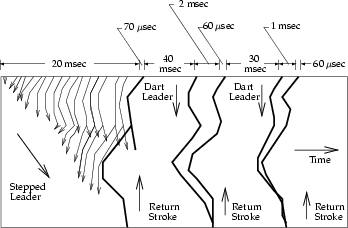
A typical stepped leader has velocity
~105 m/s) while dart leaders have velocity ~106 m/s).
Predominantly, LASA (see Smith et al, 2000, or the Sferic Array web page) collected 8~ms of
threshold triggered data, so the stepped leader ~20~ms before the
return stroke is not observed.
A longer (>250~ms) LASA record, presented in below,
has good agreement with the time line presented in Panel A.
The diamonds plotted are National Lightning Detection Network reported
return strokes. There are four zoomed-in views of the initial leader
activity (approximately 15 seconds before the initial return stroke),
the leader with the initial return stroke, just the initial return stroke
in the 8 ms window (representative of a typical sferic array 8 ms record),
and a view of a subsequent return stroke.

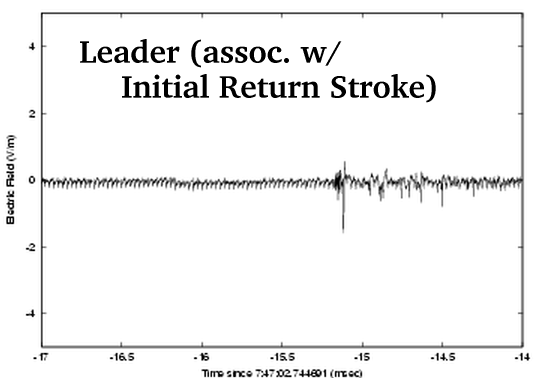
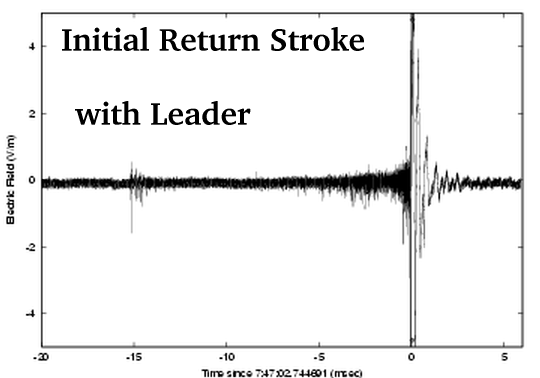
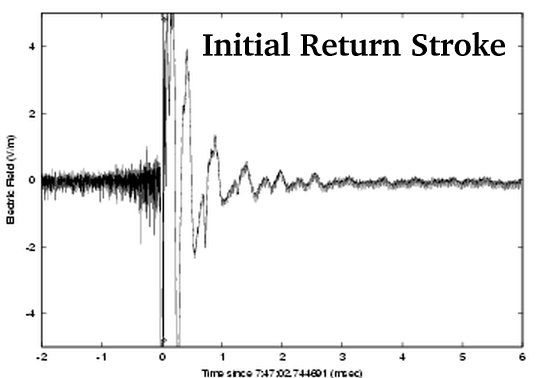
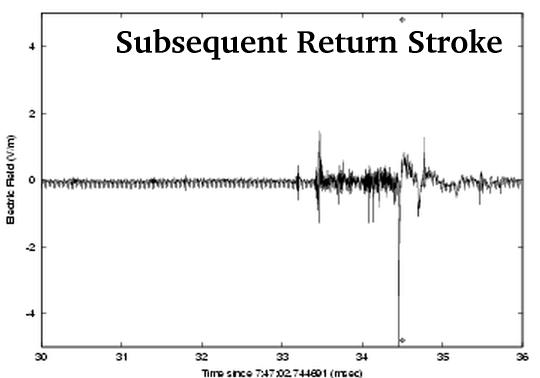
The figure below presents a 8~ms LASA record
with leader (which is extra-ordinary because of the fast/intense
stepped leader).
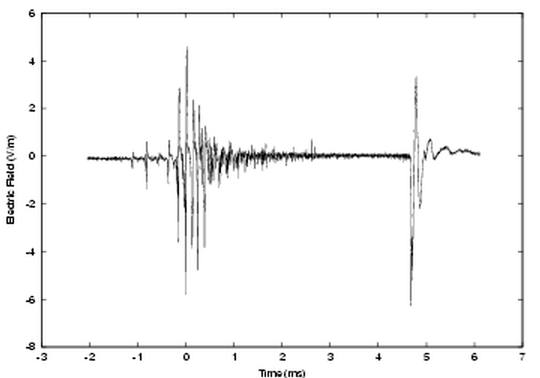
Links to:










